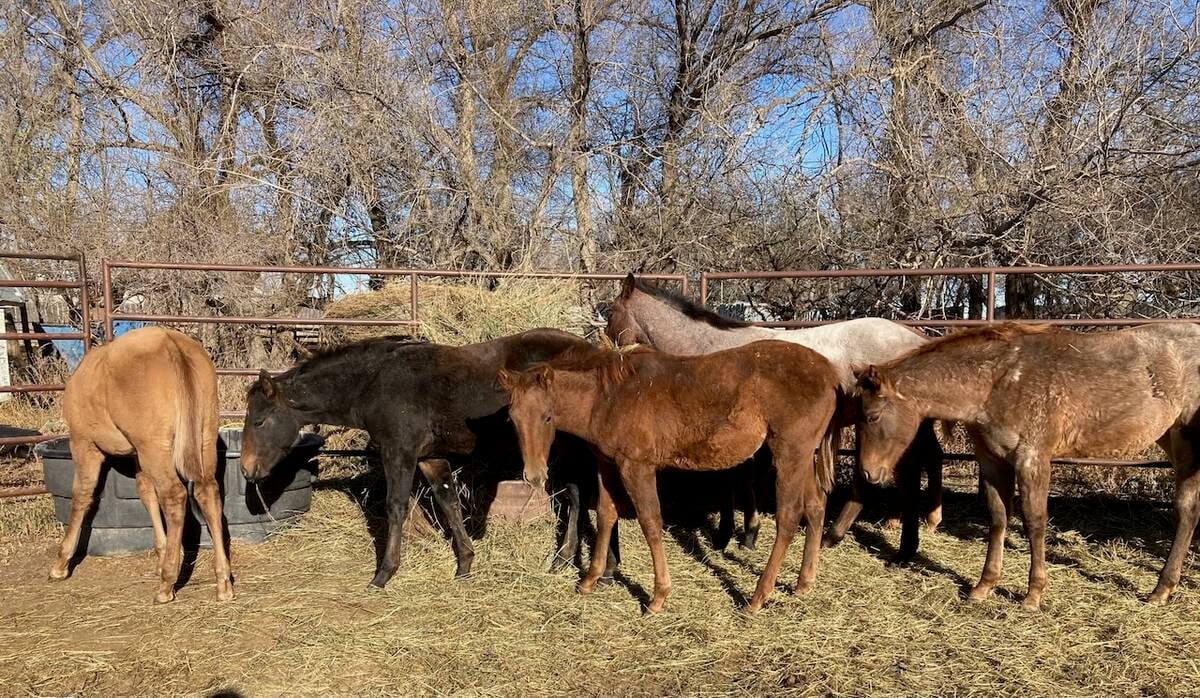Elaine writes: What if you could break free from being stuck, by emphasizing the positive aspects of your farm family business? One of my core strengths, according to the Clifton StrengthsFinder quiz, is positivity. As a coach I often see the positive choices ahead and I hope this article by my coaching teammate Crisol Gonzalez gives you some new tools to move forward.
The Appreciative Inquiry process has challenged our approach to problem-solving. How could focusing on the positive elements of our family business resolve conflicts? It sounds contradictory, doesn’t it?
As proponents such as David Cooperrider, Diana Whitney and Amanda Trosten-Bloom explain, Appreciative Inquiry is a flexible exercise for organizations seeking a positive mindset shift. It’s a nine- to 12-month exploratory journey, a process of rediscovery and realignment. Like machinery, farming family teams require alignment, organization, strength-building and planning spaces.
Read Also

Fall clean-up and bringing animals home at the Eppich ranch
Winter is approaching which meant emoving old fence rows and bringing livestock home before the cold and the snow at the Eppich family ranch.
As Cooperrider puts it, ‘Appreciative’ is defined as “recognizing the best in people… affirming past and present strengths, successes, and potentials” while ‘Inquiry’ refers to “the act of exploration and discovery, asking questions.”
The process involves several individual conversations and family meetings that will discuss topics divided into the “four-D” cycles of conversations: Discovery, Dream, Design and Destiny.
Discovery: Being curious to ask positive questions
These conversations are about “uncovering what gives life to your farming family.”
Sit down with each family/team member and ask curious, positive questions. Let them openly share their strengths and discuss the strengths they see in the entire family. Encourage them to share examples where the family team demonstrated these strengths. Prepare to be open, avoid judgment, listen attentively and understand your family team’s aspirations, dreams and goals.
This cycle offers an opportunity to reconnect, understand your family team’s strengths and, most importantly, listen to their goals. Often, family business goals are overlooked or dominated by a few members. However, setting goals collaboratively inspires the family team because goals are the compass for the farm.
As Mexican businessman Arnoldo De La Rocha says: “Those who don’t know where they are going have already arrived; don’t stress about it. On the other hand, those who know where they’re going have an advantage. There’s no favourable wind for those who haven’t set a course. We need to know where we are going. The world co-ordinates to clear the way for those who know their destination.”
Setting goals as farming families is the first step to moving forward. Start building a strong team by involving everyone in setting farm goals. What goals are hidden within your family team?
Dream: What are we called to?
This is one of the most inspiring processes in any organization; it’s an opportunity to exercise your imagination and envision an inspiring organization. Based on your family’s discovered strengths, you’ll formulate a vision for your farm in this stage. This process will span multiple meetings, where each member brings and reflects collectively on their ideas. At each meeting, you will agree on statements to shape the farm’s future vision. Your goal, as Cooperrider puts it, is to answer the question: “What is the world calling us to become?”
Design: What needs to change?
In this phase, you begin to make changes so that the dream/vision from the previous cycle gains traction in the organization. This cycle addresses what needs to change on the farm to achieve its vision.
For founders, it’s crucial during these conversations that you can stay open to considering making changes and be very clear about expressing your concerns and needs with the intention of finding solutions. Remember: Appreciative Inquiry is grounded in those positive and real moments when your family practiced its strengths.
Destiny: Daily decisions for change
This phase reminds the organization that a process such as Appreciative Inquiry requires a firm grip on family values and adopting and practicing new principles.
Appreciative Inquiry stretches our thinking and reactions to the world. It also invites us to embrace five principles that will generate momentum to move forward and get unstuck: co-creation, simultaneity (readiness to change), poetic, anticipatory and positive. It will challenge and transform your family farm as much as you are willing to align your thoughts, words and actions with these five principles:
- Co-creation: It reminds us that, as Chuck Page put it, “a single leaf working alone provides no shade.” A family farm is a collective project that should engage in dreaming, planning and envisioning together, in addition to handling daily chores.
- Simultaneity: It reminds us that change occurs in our daily small decisions. Respect grows as much as I commit to speaking respectfully to my partner, children and siblings. Visions should be crafted to be lived out daily.
- Poetic: Human organizations, according to Cooperrider, are “more like an open book… An organization’s story is constantly being co-authored. Past, present and future are endless sources of learning, inspiration and interpretation.” Every past, present and future member of your farm family writes and will leave a message in your legacy book. What would be the title of your family book?
- Anticipatory: “Our positive visions of the future guide our positive actions,” Cooperrider says. It’s about choosing the path we want to take every day. Do we approach life challenges with appreciation for the people and resources we must face?
- Positive: This is the most life-giving principle. It calls us to stay connected and appreciate the people we work with — “to be rich in relationships.” What actions, routines and practices in your family/team can sustain “hope, excitement, camaraderie, a sense of urgent purpose, and sheer joy in creating something meaningful together”?
We hope this inspires you to embark on a process such as Appreciative Inquiry, to co-create a better “farmily.” May you discover the richness in life while serving the farm and family.















